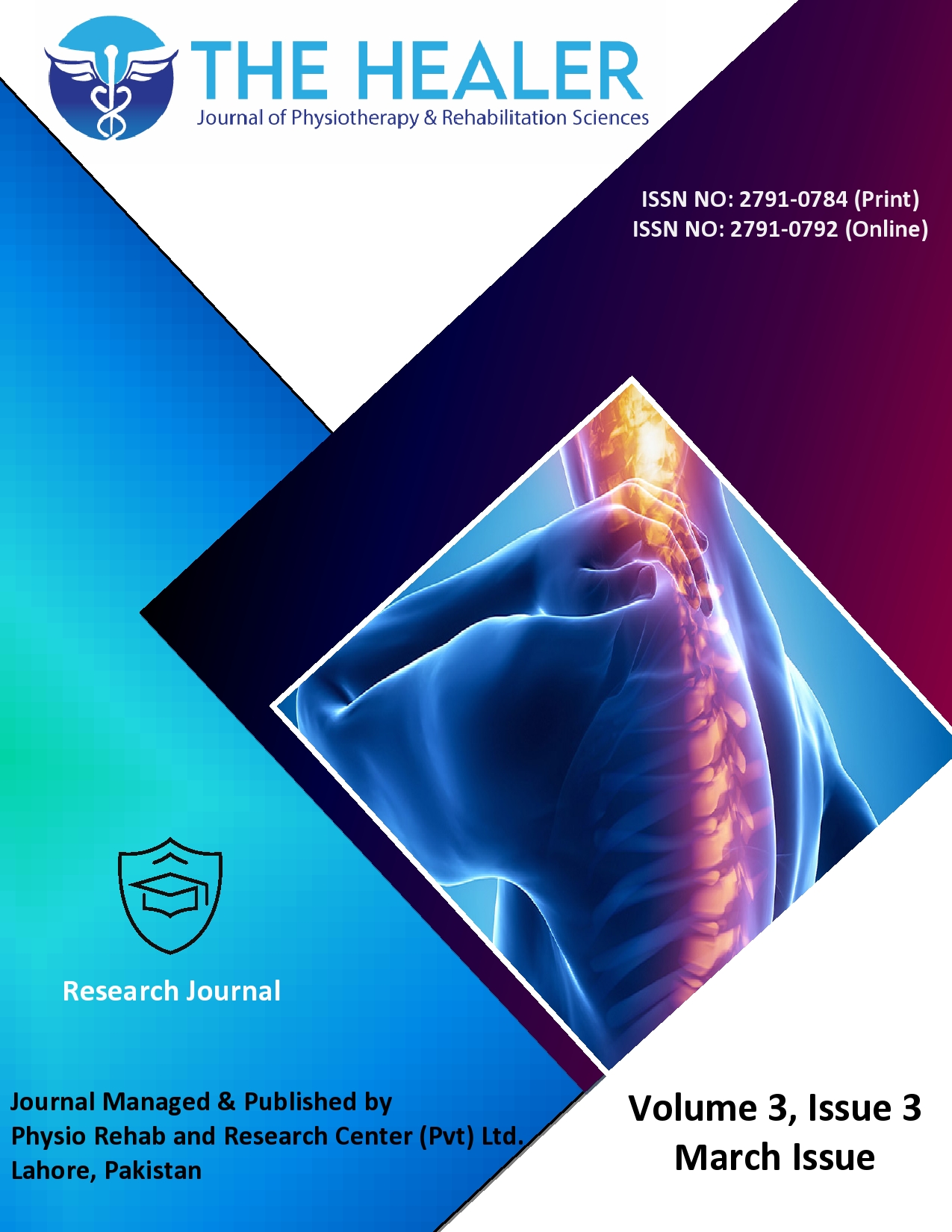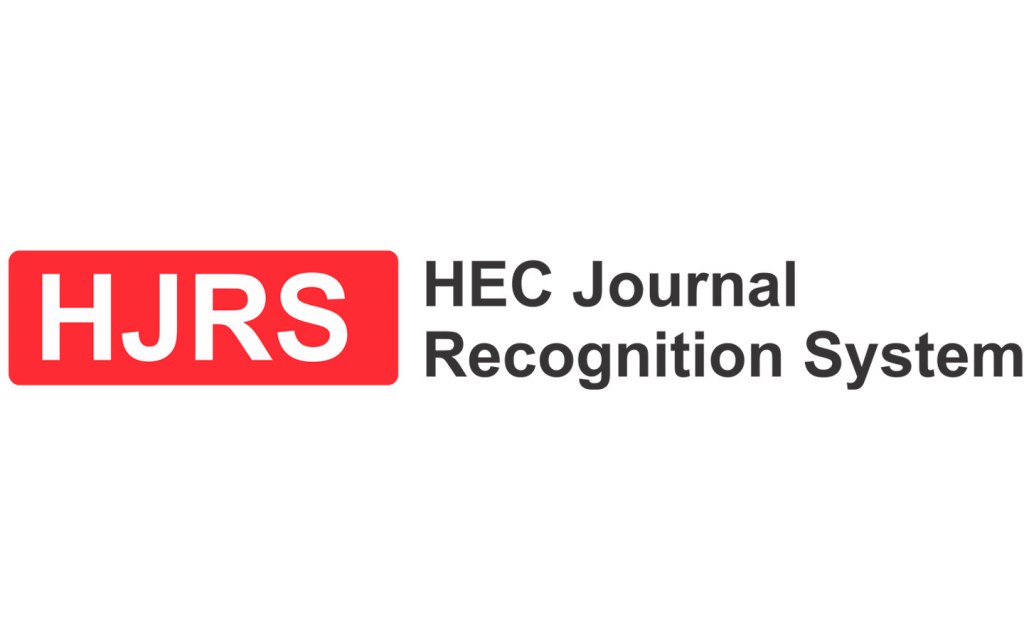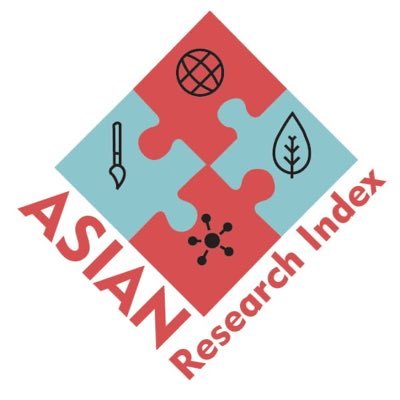Stress and Coping Strategies Among Postgraduate Medical Students in Lahore
Stress and Coping Strategies in Medical Students
DOI:
https://doi.org/10.55735/hjprs.v3i3.140Keywords:
coping strategies, post-graduate medical students, stressAbstract
Background: It can be very stressful for students to be under constant pressure to succeed in becoming highly qualified healthcare professionals. Postgraduate and professional students were found to experience higher levels of stress than usual when age and gender were compared with populations of the same type. Negative effects of stress include poor academic performance, diminished reasoning ability, decreased coping and difficulty following graduate courses. Objective: To learn about coping mechanisms and stress among postgraduate medical students in Lahore. Methods: This study included 101 postgraduate medical students from the campuses of private universities in Lahore and Islamabad. Informed consent forms were used to include participants. Google forms were used to create an online survey, which was then shared on Instagram and WhatsApp. A perceived stress scale was used to access the various stressors and the brief COPE inventory was used to look at the students' efficient coping mechanisms. An analysis of postgraduate students' coping mechanisms and the relationship between stress and gender was done. The data from Google forms were processed, placed into Microsoft Excel and analyzed with SPSS version 25. The findings were presented in the form of tables and graphs. Results: Among postgraduate medical students or nearly one-fourth (21.8%) of participants reported high stress, while 72.3% reported moderate stress, with men reporting higher levels of stress than women. The most common coping strategies were active coping, acceptance, planning and religion. Conclusion: It seems that graduated students are under more stress and positive psychological approaches should be made available by university administration and professors to help students deal with the demands of pursuing a degree in the medical field. Ignoring these elements would not give students the best chances for learning and employment.
References
Jeyagurunathan A, Vaingankar JA, Abdin E, et al. Gender differences in positive mental health among individuals with schizophrenia. 2017; 74: 88-95. https://doi.org/10.1016/j.comppsych.2017.01.005
Abdallah AR, Gabr HMJIRJMMS. Depression, anxiety and stress among first year medical students in an Egyptian public university. 2014; 2(1): 11-9. https://www.researchgate.net/publication/326539337
Tian-Ci Quek T, Wai-San Tam W, X. Tran B, et al. The global prevalence of anxiety among medical students: a meta-analysis. 2019; 16(15): 2735. https://doi.org/10.3390/ijerph16152735
Islam MA, Barna SD, Raihan H, Khan MNA, Hossain MTJPo. Depression and anxiety among university students during the COVID-19 pandemic in Bangladesh: A web-based cross-sectional survey. 2020; 15(8): e0238162. https://doi.org/10.1371/journal.pone.0238162
Islam MS, Sujan MSH, Tasnim R, Sikder MT, Potenza MN, Van Os JJPo. Psychological responses during the COVID-19 outbreak among university students in Bangladesh. 2020; 15(12): e0245083. https://doi.org/10.1371/journal.pone.0245083
Wahed WYA, Hassan SKJAJom. Prevalence and associated factors of stress, anxiety and depression among medical Fayoum University students. 2017; 53(1): 77-84. DOI: 10.1016/j.ajme.2016.01.005
Islam S, Akter R, Sikder T, Griffiths MDJIJoMH, Addiction. Prevalence and factors associated with depression and anxiety among first-year university students in Bangladesh: a cross-sectional study. 2020: 1-14. DOI: https://doi.org/10.1007/s11469-020-00242-y
Ahammed B, Jahan N, Seddeque A, et al. Exploring the association between mental health and subjective sleep quality during the COVID-19 pandemic among Bangladeshi university students. 2021; 7(5): e07082. https://doi.org/10.1016/j.heliyon.2021.e07082
Melaku L, Mossie A, Negash AJJBE. Stress among medical students and its association with substance use and academic performance. 2015; 2015(4): 1-9. http://dx.doi.org/10.1155/2015/149509
Herbert C, El Bolock A, Abdennadher SJBp. How do you feel during the COVID-19 pandemic? A survey using psychological and linguistic self-report measures, and machine learning to investigate mental health, subjective experience, personality, and behaviour during the COVID-19 pandemic among university students. 2021; 9(1): 1-23. https://doi.org/10.1186/s40359-021-00574-x
Kebede MA, Anbessie B, Ayano GJIjomhs. Prevalence and predictors of depression and anxiety among medical students in Addis Ababa, Ethiopia. 2019; 13(1): 1-8. https://doi.org/10.1186/s13033-019-0287-6
Aboalshamat K, Hou X-Y, Strodl EJMt. Psychological well-being status among medical and dental students in Makkah, Saudi Arabia: a cross-sectional study. 2015; 37(sup1): S75-S81. https://doi.org/10.3109/0142159X.2015.1006612
Syed A, Ali SS, Khan MJPjoms. Frequency of depression, anxiety and stress among the undergraduate physiotherapy students. 2018; 34(2): 468. doi: 10.12669/pjms.342.12298
Mirza AA, Milaat WA, Ramadan IK, et al. Depression, anxiety and stress among medical and non-medical students in Saudi Arabia: an epidemiological comparative cross-sectional study. 2021; 26(2): 141-51. DOI: https://doi.org/10.17712/nsj.2021.2.20200127
Yeshaw Y, Mossie AJNd, treatment. Depression, anxiety, stress, and their associated factors among Jimma University staff, Jimma, Southwest Ethiopia, 2016: a cross-sectional study. 2017: 2803-12. https://www.tandfonline.com/doi/full/10.2147/NDT.S150444
Islam M, Barna S, Raihan H, Khan MJPO. NA, and Hossain MT (2020) Depression and anxiety among university students during the COVID-19 pandemic in Bangladesh: A web-based crosssectional survey. 2020; 15(8): e0238162. https://doi.org/10.1371/journal.pone.0238162
Dafaalla M, Farah A, Bashir S, et al. Depression, anxiety, and stress in sudanese medical students: a cross sectional study on role of quality of life and social support. 2016; 4(13): 937-42. DOI:10.12691/education-4-13-4
Azim SR, Baig MJJPMA. Frequency and perceived causes of depression, anxiety and stress among medical students of a private medical institute in Karachi: a mixed method study. 2019; 69(6): 840-5. https://pubmed.ncbi.nlm.nih.gov/31189292/
Ahmad WNW, Idrus A, Azman M, Kassymova GJIJoPH. Correlates of mental health on online distance learning during COVID-19 among Malaysia vocational students. 2022; 11(1): 254-62. DOI: 10.11591/ijphs.v11i1.21105
ul Haq MA, Dar IS, Aslam M, Mahmood QKJJoPH. Psychometric study of depression, anxiety and stress among university students. 2018; 26: 211-7. https://doi.org/10.1007/s10389-017-0893-1.
Nakie G, Segon T, Melkam M, Desalegn GT, Zeleke TAJBp. Prevalence and associated factors of depression, anxiety, and stress among high school students in, Northwest Ethiopia, 2021. 2022; 22(1): 1-12. https://doi.org/10.1186/s12888-022-04393-1
Sandover S, Jonas-Dwyer D, Marr TJBme. Graduate entry and undergraduate medical students’ study approaches, stress levels and ways of coping: a five year longitudinal study. 2015; 15(1): 1-11. DOI:https://doi.org/10.1186/s12909-015-0284-7
Mandava P, SankarSingaraju G, Ganugapanta VR, Yelchuri HJIJoDS. Comparison of stress, burnout and its association among postgraduate orthodontic and undergraduate students in India. 2018; 10(2): 66. DOI: 10.4103/IJDS.IJDS_127_17
Abraham J, Navya C, Joshy VJIJCMPH. Perceived stress and coping strategies among post graduate students of a medical college in Thrissur, Kerala. 2019; 6: 814-7. DOI:10.18203/2394-6040.IJCMPH20190213
Singh A, Chopra M, Adiba S, et al. A descriptive study of perceived stress among the North Indian nursing undergraduate students. 2013; 18(4). http://ijnmr.mui.ac.ir/index.php/ijnmr/article/view/917
An H, Chung S, Park J, Kim S-Y, Kim KM, Kim K-SJPR. Novelty-seeking and avoidant coping strategies are associated with academic stress in Korean medical students. 2012; 200(2-3): 464-8. https://doi.org/10.1016/j.psychres.2012.07.048
Garber MCJAjope. Exercise as a stress coping mechanism in a pharmacy student population. 2017; 81(3). DOI: https://doi.org/10.5688/ajpe81350

Downloads
Published
How to Cite
License
Copyright (c) 2023 The Healer Journal of Physiotherapy and Rehabilitation Sciences

This work is licensed under a Creative Commons Attribution 4.0 International License.
CC BY












